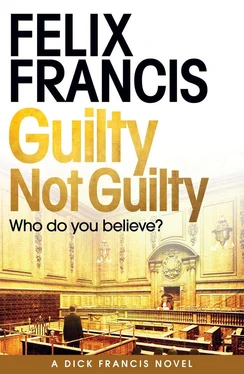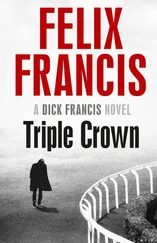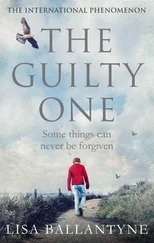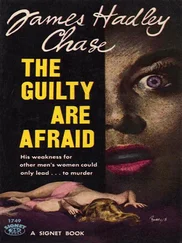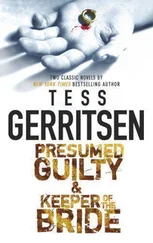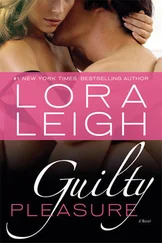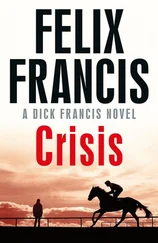In a strange way, I felt sorry for Douglas. Amelia and I had never enjoyed the delight of having children, not that we hadn’t tried. Five rounds of fertility treatment had ultimately proved fruitless and, by the time we reached our mid-thirties, we had reconciled ourselves to spending our lives childless. But Douglas had become accustomed to a house full of young voices only for them to be snatched away when custody of the boys had been awarded to their mother.
‘How frequently do you see your kids?’ I asked.
‘Not as often as I would like. They’re so far away.’
Charlotte had not only left him but London too, choosing to spend a large portion of her divorce settlement purchasing a property in the Yorkshire Dales. She had also cancelled the boys’ registrations for Eton and had sent them instead to Sedbergh School, nearly three hundred miles north of Belgravia.
‘I do try to get up there to see them occasionally, especially if they are in a play or something, but I’m so busy. I have to work so hard down here just to pay the school fees.’
I thought it was a poor excuse, but probably a true one with independent schools now charging a king’s ransom every term.
We walked back to Chester Square for coffee, arriving in time to watch the BBC ten o’clock news on the television in Douglas’s sitting room.
Amelia was the third item.
‘Mrs Gordon-Russell, the daughter-in-law of the Earl of Wrexham, has been found dead at her Oxfordshire home,’ voiced the newsreader over a photograph of Amelia taken by the paparazzi outside Royal Ascot the previous year — all smiles with a large hat. ‘Police inquiries are continuing at the house near Banbury after Mrs Gordon-Russell’s body was found at about ten o’clock this morning by her brother, Mr Joseph Bradbury.’ There was footage of some men in white overalls and masks going into the house while a uniformed policeman stood guard outside. ‘Sources have told the BBC that the death is being considered as suspicious and Thames Valley Police have confirmed this evening that they are conducting a murder investigation. Mr Bradbury made the following statement to journalists.’
The shot showed Joe Bradbury standing on the road with my house clearly visible in the background.
‘The family are understandably devastated by the death of my darling sister,’ he said, self-assured and looking straight into the camera, his horn-rimmed spectacles reflecting the multiple flashes from the assembled press photographers. ‘We are helping the police in every way to bring the perpetrator of this horrendous crime to justice. I would ask that anyone who knows anything about my sister’s death to come forward and speak to the police.’
It almost made me vomit just to watch it.
Seeing the news report, with its happy-looking image of Amelia and the police activity at my house, seemed to bring home to me the appalling reality of the situation.
My gorgeous loving wife was dead and I would never again see her smiling and laughing as she had done at Ascot in the summer, as in the photo.
My eyes began to well up and my stiff upper lip started to tremble.
‘I’m sorry,’ I said to Douglas, trying hard to fight back the tears. ‘I need to go up.’
I stumbled through the sitting-room door and almost ran up the stairs.
‘Second floor, on the right,’ Douglas shouted up after me.
I didn’t quite make it.
I lay down on the stairs and sobbed, my whole body convulsing as I gasped for air. I cried and cried for what seemed like an age, until I simply ran out of the energy to cry any more.
When I had finished, Douglas came up, his eyes also showing red from weeping.
‘Come on, my dear chap,’ he said, putting a kindly hand on my shoulder. ‘Let’s get you to bed.’
He almost lifted me to a standing position and guided me up the last few steps to the second floor and then into his elder son’s bedroom, the one with ‘Philip’s Room’ painted on a small oval ceramic plate screwed to the door.
Philip may have now grown into a burly fifteen-year-old rugby-playing teenager but his room had changed little since he’d left it as an eleven-year-old child. Dozens of miniature Star Wars characters stood to attention, staring out from a shelf, while the bed was covered in soft toys, which Douglas now threw onto the carpet as I removed my shirt, trousers, shoes and socks.
I climbed in between the sheets, exhausted.
‘Thanks,’ I said.
‘No problem,’ Douglas replied. ‘Sleep as late as you like. I’m currently prosecuting a murder case at the Old Bailey and I have several meetings to attend before the court sits so I need to be gone from here by seven. I’ll see you tomorrow evening.’
‘Okay. Thanks again.’
He started to go but turned back to me.
‘Be assured,’ he said, in a rare expression of raw emotion, ‘we’ll get even with the bastard who did this.’
In spite of my tiredness, sleep would not come and I lay awake in the darkness for hours longing so much for things to be different, to be as they had been just a couple of days ago.
Why had I gone to the dinner? Why hadn’t I made her come with me? Why hadn’t I gone home afterwards? Why? Why? Why?
Why was she dead?
Was I somehow to blame?
Before I eventually drifted off into restless and sporadic sleep, I experienced two more overwhelming bouts of sobbing.
It felt like it was all too much to bear but I had no choice in the matter.
Misery, it seemed, was not an option and I discovered that my former attempts at advance mental preparation were, in the end, of no benefit whatsoever in relieving the devastating heartbreak of the actual loss.
Grief was the price we paid for love — the greater the love, the worse the grief.
My love for Amelia had been absolute and, consequently, my grief was desperate.
By the time the morning light began to show through the curtains, I was a wreck.
I turned on the bedside light and looked at my watch. Seven-thirty. I may have been in bed for more than eight hours but I’d been asleep for less than half of that time. I did not feel rested.
I dragged myself out of bed and walked across the landing to the bathroom.
I had a vague recollection of having earlier heard Douglas leaving the house but he had not forgotten me. He had left a pile of clothes outside my door with a note on top — ‘hope these fit’. Pants, socks, blue corduroy trousers and a new checked shirt still wrapped in the maker’s plastic.
I showered and put on the clothes. All was well except for the cords, which were far too long, so I replaced them with the trousers from my suit. It was not a surprise really. Douglas was a good five inches taller than I, although our upper bodies must have been similar as the shirt fitted fairly well.
I went down to the kitchen where, once again, Douglas had come to my aid, leaving out the essentials for making breakfast. There was even a spare front-door key on the kitchen counter with another note saying that I could come and go as I pleased. He would be back later.
I was so lucky to have such a brother. We had always been close, even though Douglas had been much nearer in age to Edward, the eldest son. Indeed, the two of us had often ganged up together against our elder brother on the grounds that, as the heir, he would have his day later. And he never let us forget it, reminding us constantly that, in time, it would be he who would become the earl and own the castle, and not us.
Nevertheless, I smiled at the happy memories of our childhood spent largely in make-believe adventures within our grandfather’s medieval castle, with Edward always as the baddie — often the wicked Sheriff of Nottingham up against our Robin Hood and Little John, although, in our case, Little John really had been little, i.e. me.
Читать дальше
